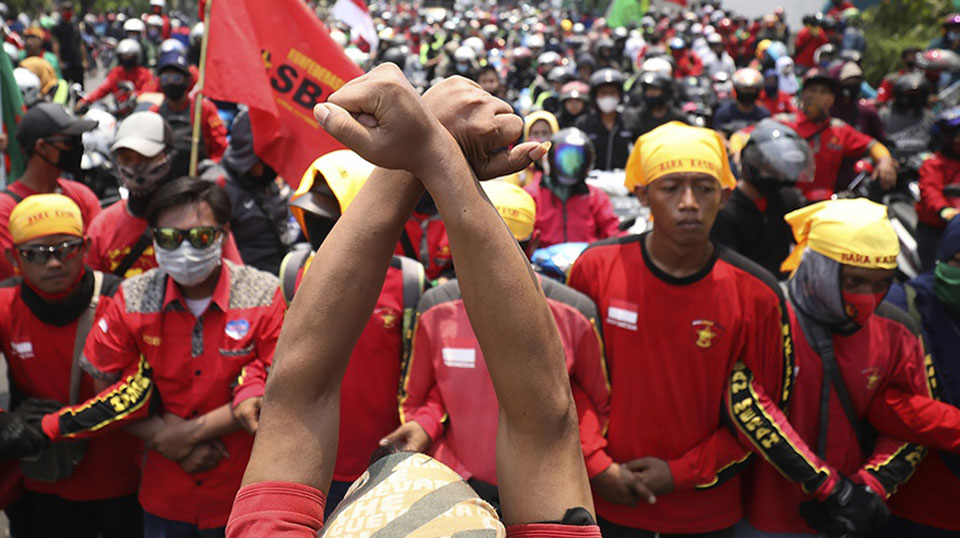
Millions took strike action in Indonesia Wednesday and thousands rallied in cities across the country in protest at a new Job Creation Law that takes an axe to workers’ rights and environmental protections.
In Bandung, West Java, protesters blocked roads around the local parliament building and burned tires. Industrial workers rallied in Tangerang and Bekasi and walked out of factories and demonstrated in Karawang and Serang in West Java and Banten provinces.
Police prevented trade unions from rallying in the capital Jakarta.
The Confederation of Indonesian Trade Unions (KSPI) said that two million workers from 32 unions were taking three days of strike action against the measure.
KSPI president Said Iqbal said the federation “rejects the entire contents of the law, which is very detrimental to workers.” He demanded that it be canceled immediately. “Workers are already suffering a lot from the COVID-19 crisis.”
The Job Creation Law has been slammed as “catastrophic” by Amnesty International, while the International Trade Union Confederation says it will “destabilize lives and ruin livelihoods so that foreign corporations can extract wealth from the country.” The Building and Woodworkers International also protested at the law, saying it puts “the interests and demands of foreign investors ahead of workers, communities, and the environment.”
It replaces 79 separate laws, reducing workers’ holiday entitlement and severance pay, allowing indefinite retention of workers on temporary contracts, and removes the requirement for environmental assessments of business projects, a measure likely to accelerate deforestation.
Indonesia is the leading producer of palm oil, and the palm plantations recently excoriated for widespread abuse of child and slave labor in a probe by the Associated Press—have swallowed up vast areas of forest, driving rare animals like the orangutan and Sumatran rhino towards extinction.
The law also makes it easier for employers to import foreign labor, despite exposure of the abuse of migrant workers on the palm plantations.
The ITUC called on President Joko Widodo to revoke the law and negotiate any changes to workers’ rights with trade unions. Widodo acknowledged that the law is deeply unpopular, but said he was free to pass it as he was “no longer constrained by politics” as he doesn’t intend to stand for re-election.












Comments